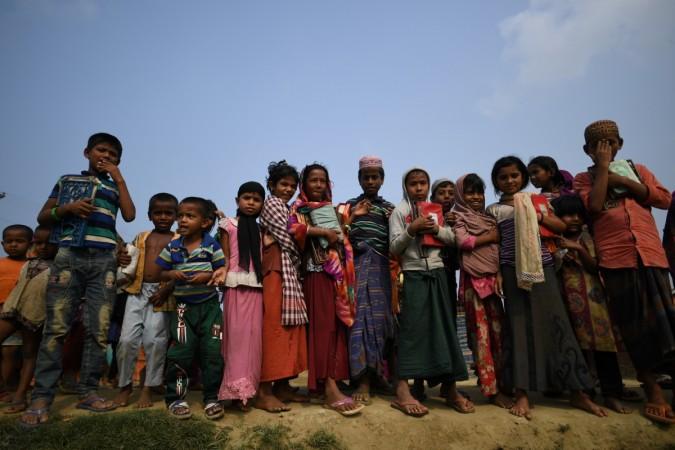
The UN is "very concerned" over India sending back Rohingya refugees to Myanmar without the world body's refugee agency ascertaining if they are voluntarily returning, according to an official here.
"Whenever any family is returned, we want to make sure that the nature of their return was voluntary and UNHCR (UN High Commissioner for Human Rights) was not able to assess the voluntary nature of that return. So we are very concerned about this," said UN Secretary-General Antonio Guterres' Deputy Spokesperson Farhan Haq on Friday.
The UN maintains that conditions are not safe for the Rohingyas to return home.
Asked if Guterres would intervene and talk to Indian leaders about it, Haq indicated that there were no immediate plans for him to get involved.
"There are movements on the ground about which they (UNHCR) are concerned, but they are in charge of this particular file and we will see how it goes with their efforts," Haq said.
A Rohingya family of five -- parents and three children -- was sent back to Myanmar on Thursday.
The Indian authorities said that the family had entered the country illegally in 2014, or in 2013, according to the UNHCR. They had been detained by India since then.
The family was registered with the UNHCR as refugees. It was among the second group to be repatriated to Myanmar in the last four months.
"Despite repeated requests, the UNHCR did not receive a response from the Indian authorities for access to the family to assess the voluntary nature of their decision to return," Haq said.
The UNHCR said in a statement from Geneva that it regretted India's decision to repatriate the Rohingyas to Myanmar and said it "continues to request access and seek clarification on the circumstances under which the return has taken place".
About 18,000 Rohingya refugees and asylum-seekers are registered with the UNHCR in India.
The UN has even opposed an agreement last October between Myanmar and Bangladesh for the the return of refugees as it says they will not be safe back home.
More than 700,000 Rohingyas who have fled Myanmar's Rakhine state since August 2017 are living in camps in Bangladesh. The exodus began after attacks on Myanmar security forces by the Arakan Rohingya Salvation Army led by the Pakistan-born Ataullah abu Ammar Jununi.
The security forces and vigilantes launched retaliatory attacks against Rohingyas and destroyed many of their villages and property.
The UN called the attacks on the Rohingyas that led to their fleeing Myanmar a case of "ethnic cleansing".














